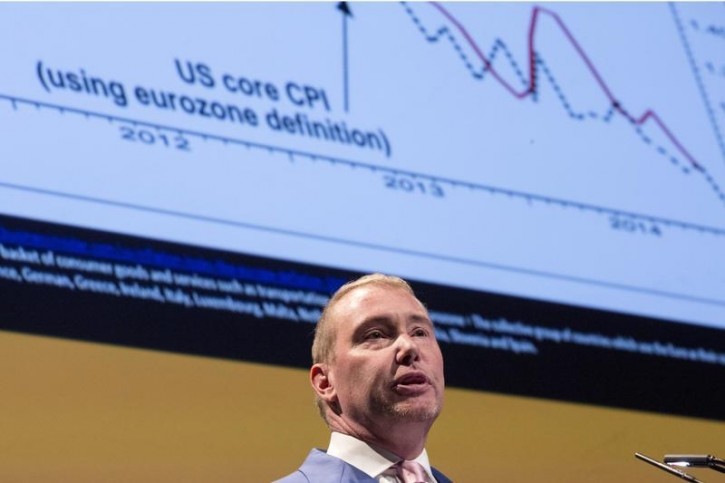
New York – Jeffrey Gundlach, chief executive officer of DoubleLine Capital, said on Tuesday that there is “big money” to be made on the “short side” if equities fail to stay near current highs.
Gundlach, who oversees more than $100 billion at Los Angeles-based DoubleLine Capital, said on a webcast that he has been selectively betting against shares in the Standard & Poor’s 500 index and continues to favor emerging market bonds over high-yield “junk” debt. Gundlach, known on Wall Street as the “Bond King,” told Reuters after the webcast: “A minor new high in the S&P might be rejected, which is what happened with U.S. Treasuries.”
On Tuesday, the Dow Jones Industrial Average hit a record and the Nasdaq Composite Index turned positive for the year, the latest milestones in a rally that also carried the S&P 500 to a new high for the second day in a row, closing at 2152.14.
Gundlach had warned investors last week that the yield on the 10-year Treasury note at around 1.38 percent to 1.39 percent “is a terrible trade location. It is the worst trade location in the history of the 10-year Treasury.”
The 10-year Treasury note yield jumped to 1.51 percent on Tuesday. Gundlach said on Tuesday’s webcast that he sees the yield on the 10-year Treasury settling around 1.7 percent as a near-term base case.
Gundlach has repeatedly said gold is the better alternative to Treasuries and equities against the backdrop of “a banking system in Europe, which is in a state of heading toward insolvency.”
Gundlach said on Tuesday’s webcast that investors become fearful and nervous when banking shares begin to trade in the single digits, as could happen with Deutsche Bank AG, whose value has nearly halved since the beginning of the year.
“They know single digits is like a fire alarm,” Gundlach said in an interview.
Deutsche closed on Tuesday at $12.79 per share.
Gundlach, who is known for his bold, prescient predictions including last year’s oil-price plunge and China’s slowdown, defended his stance on high-yield junk bonds.
Junk bonds, which came under severe selling pressure earlier this year before recovering, are “dangerous because of their declining recovery rates,” Gundlach said.
He added it was the “right” decision to purchase emerging market debt over junk bonds. Emerging market debt has posted returns of roughly 11 percent so far this year, compared with 11.21 percent for junk bonds.
As reported by Vos Iz Neias
